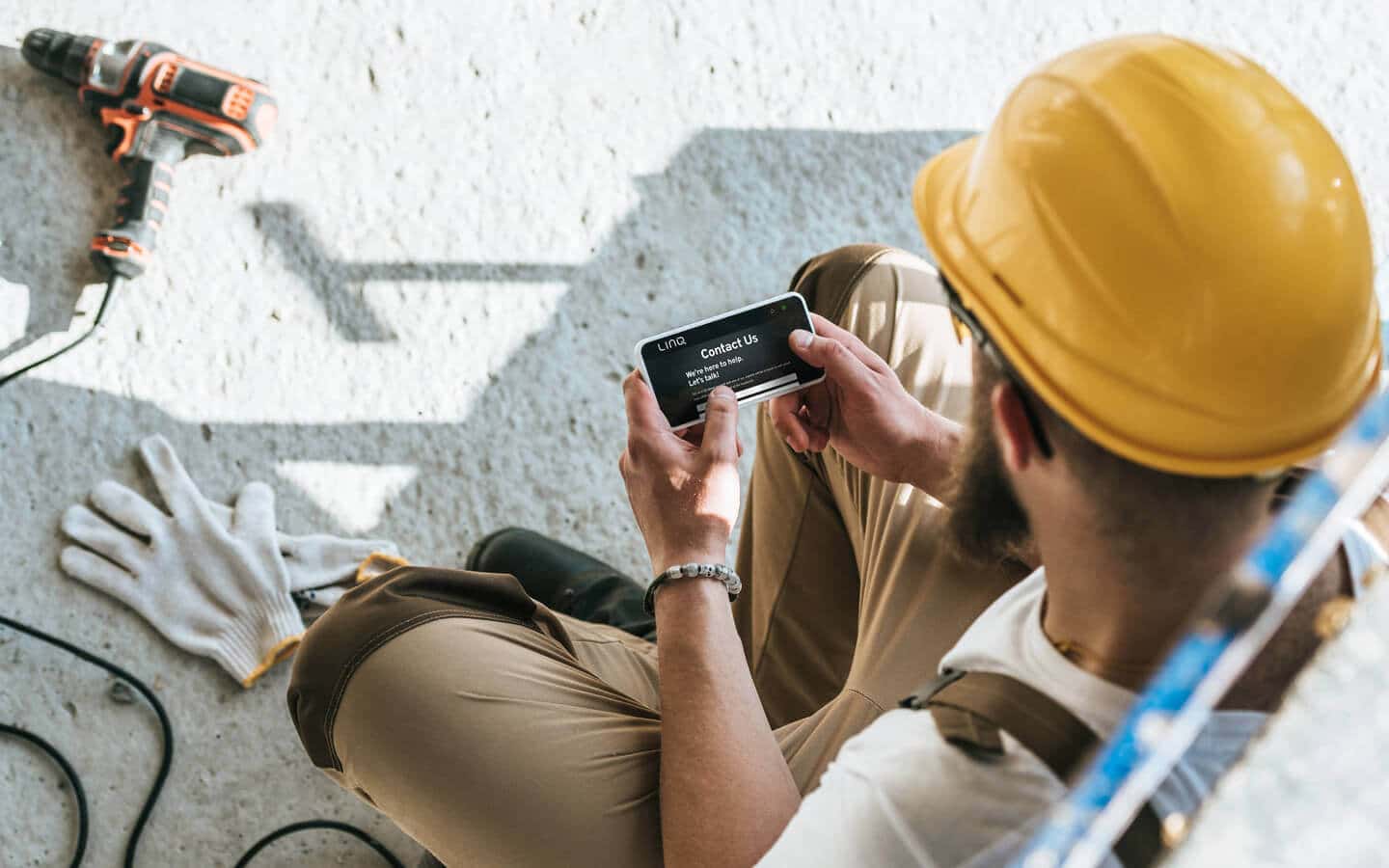
Mobile devices are critical pieces of tech in the construction industry, enabling quicker communication and decision making in extreme—and sometimes hazardous—environments. Between accidental drops, dirt, liquids, and other harsh working conditions, mobile devices in construction zones are pushed to their limits. At the risk of shorter life cycles, reduced reliability and limited connectivity, devices must be able to withstand the daily rigor of rough construction sites.
In fact, extreme work environments require a number of considerations when planning a mobile strategy, and purchasing devices. No matter the size of your team, the right technology plays a vital role in keeping employees informed and connected at all times. But where do you start and what do you need to know to make the best choices? We have the answers.
Check out these expert tips and key considerations for buying mobile devices for your construction team.
Pay attention to providers and connectivity
There’s only one thing more important than your devices: your connection. If your phones don’t have access to cellular networks or data on the job site, they won’t be very helpful to your team.
In order to keep your team connected on your job site, you’ll need to find a provider. Coverage varies from one provider to the next, so it’s essential that you check with each potential option to ensure your job site will be covered. We’ve heard stories of companies planning job sites around specific providers, and others switching providers to get a better connection, so don’t overlook this important consideration.
Once you’ve picked a provider, you’ll need to decide on a plan. For smaller teams, or those that don’t rely on too much data, a 25-50GB share plan is effective and cost-efficient. But if you’ve got a network of routers and data-reliant applications, you’ll probably be better off with an unlimited plan. Just keep in mind that unlimited isn’t really unlimited – your connection will likely be throttled after a certain point – but with the right team by your side, you might be able to avoid it.
Beyond choosing the right provider, it’s important to plan for times when coverage isn’t ideal— as such, you might want to consider signal boosters, cradle point devices, or large scale routers to ensure your team always has reliable access to the data they need. Just keep in mind that you get what you pay for, as some of the cheaper solutions could be less reliable and lead to problems down the road. If you’re willing to spend a bit more up front, you’ll save a lot down the line.
Choose devices wisely
Choosing devices is tricky. You want them to be functional on and off the construction site, durable, affordable, and equipped with the latest tech. But it’s not always possible to have everything. It’s important to choose devices according to the needs of your business. iPhones are a great choice for companies who want devices that are easy to manage with their MDM solutions, whereas Android devices are a bit more affordable and durable. But if you’re looking for something even MORE durable, a rugged smartphone could be the best bet for your team.
Don’t forget the accessories
If you opt for a regular smartphone instead of a rugged one, you’ll need to go the extra mile to protect it. Heavy duty cases are absolutely necessary on construction sites, as they’ll give your phone the ability to survive drops, dings, dents, and more. In fact, some phone case companies are so confident in their products that they’ll even replace your device if it breaks while inside your case.
Ensure you have the support you need
Another reason we recommend iPhones is due to the support they come with. AppleCare has an amazing manufacturer warranty plan that covers a wide range of damage that would otherwise cost hundreds of dollars and put phones out of commission for weeks. In addition, Samsung offers Samsung Care+, however it’s important to know that this service pales in comparison without in-store support. If you can’t get AppleCare, or don’t want to use an Apple device, try to get insurance coverage through your manufacturer or phone provider – it could save you a lot in the long term.
Other useful devices on your job site, such as routers, signal boosters and cradle point devices, can eventually run into issues that could put your work on hold. Having a point of contact on-site to help you troubleshoot technical issues or deal with hardware repairs can be incredibly valuable when it comes to keeping your team on track.
Have backup devices
Last but certainly not least: backups. In such an extreme environment, phones and other devices are bound to break— it’s just a matter of when. In these instances, preparation is key to keep your team communicating. You should hold onto a number of backup devices that you can quickly set up and give to employees so that they remain connected while their broken or damaged devices are repaired or replaced.
If you need to replace a device, you would want cloud storage backup to add to the temporary or replacement device so you don’t have any lost data and can keep operating as usual. Cell phone data is not typically backed up to a hardware backup so it’s important to remember that you’d risk losing the data you need without cloud storage backup.
Final thoughts
No matter how many precautions you take, construction sites will always be a risky environment for mobile devices. But given their importance in many construction projects, you need to do everything you can to ensure your team stays connected on and off site. While the device you choose is certainly a major decision, the auxiliaries, like accessories, support, and device backups, are even more important.
